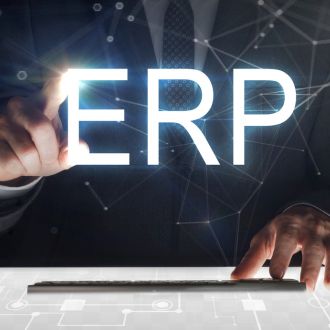Comparing Cloud Platforms: Choosing the Right Solution for Your Business
As businesses increasingly rely on cloud computing, choosing the right cloud platform has become crucial. With various options available, each offering distinct features and capabilities, it’s essential to understand how they compare. In this blog, we will explore four leading cloud platforms: Amazon Web Services (AWS), Microsoft Azure, Google Cloud Platform (GCP), and Oracle Cloud, evaluating their features, latest versions, costs, and suitability for different industries.
Amazon Web Services (AWS)
Features:
AWS is known for its extensive range of services, including computing power, storage options, and advanced features like machine learning and artificial intelligence. Key offerings include EC2 (Elastic Compute Cloud), S3 (Simple Storage Service), and RDS (Relational Database Service).
Latest Version:
AWS continuously updates its services, with recent enhancements in security features and the introduction of new AI and machine learning services.
Cost:
AWS operates on a pay-as-you-go model, allowing businesses to pay only for the services they use. Pricing can vary widely based on services and usage.
Suitable For:
AWS is ideal for startups, large enterprises, and industries requiring scalable solutions, such as technology, finance, and healthcare.
Microsoft Azure
Features:
Microsoft Azure integrates seamlessly with Microsoft products, offering services such as Azure Active Directory, Azure DevOps, and machine learning capabilities. It provides extensive support for both Windows and Linux applications.
Latest Version:
Azure continuously enhances its services, with recent updates focusing on hybrid cloud capabilities and advanced analytics.
Cost:
Azure uses a consumption-based pricing model, similar to AWS, with various pricing tiers depending on services utilized.
Suitable For:
Azure is particularly beneficial for organizations using Microsoft products, making it ideal for industries like education, government, and healthcare.
Google Cloud Platform (GCP)
Features:
GCP is known for its data analytics, machine learning, and storage capabilities. Services like BigQuery for data warehousing and Google Kubernetes Engine for container orchestration set it apart.
Latest Version:
GCP frequently updates its offerings, with new features in AI and machine learning as well as enhancements in security and data management.
Cost:
GCP offers a competitive pricing structure, often with lower costs for data storage and egress. It also provides sustained use discounts for long-running workloads.
Suitable For:
GCP is ideal for data-driven industries, such as technology, media, and advertising, thanks to its powerful analytics capabilities.
Oracle Cloud
Features:
Oracle Cloud excels in database management, offering autonomous database services, integrated cloud applications, and robust security features. It is particularly strong in enterprise resource planning (ERP) and customer relationship management (CRM).
Latest Version:
Oracle Cloud continuously rolls out updates, with the latest version enhancing performance, security, and AI capabilities in its cloud applications.
Cost:
Oracle Cloud’s pricing can be complex, with subscription-based models for its software services and competitive pricing for infrastructure.
Suitable For:
Oracle Cloud is ideal for large enterprises, particularly in finance, healthcare, and manufacturing, where advanced database and ERP capabilities are critical.
Conclusion
Choosing the right cloud platform depends on your organization’s specific needs, budget, and industry requirements. AWS offers a broad range of services, Azure is perfect for Microsoft-centric environments, GCP excels in data analytics, and Oracle Cloud is tailored for enterprises needing robust database solutions. By carefully evaluating each platform’s features, costs, and suitability, businesses can make informed decisions that drive growth and innovation.




